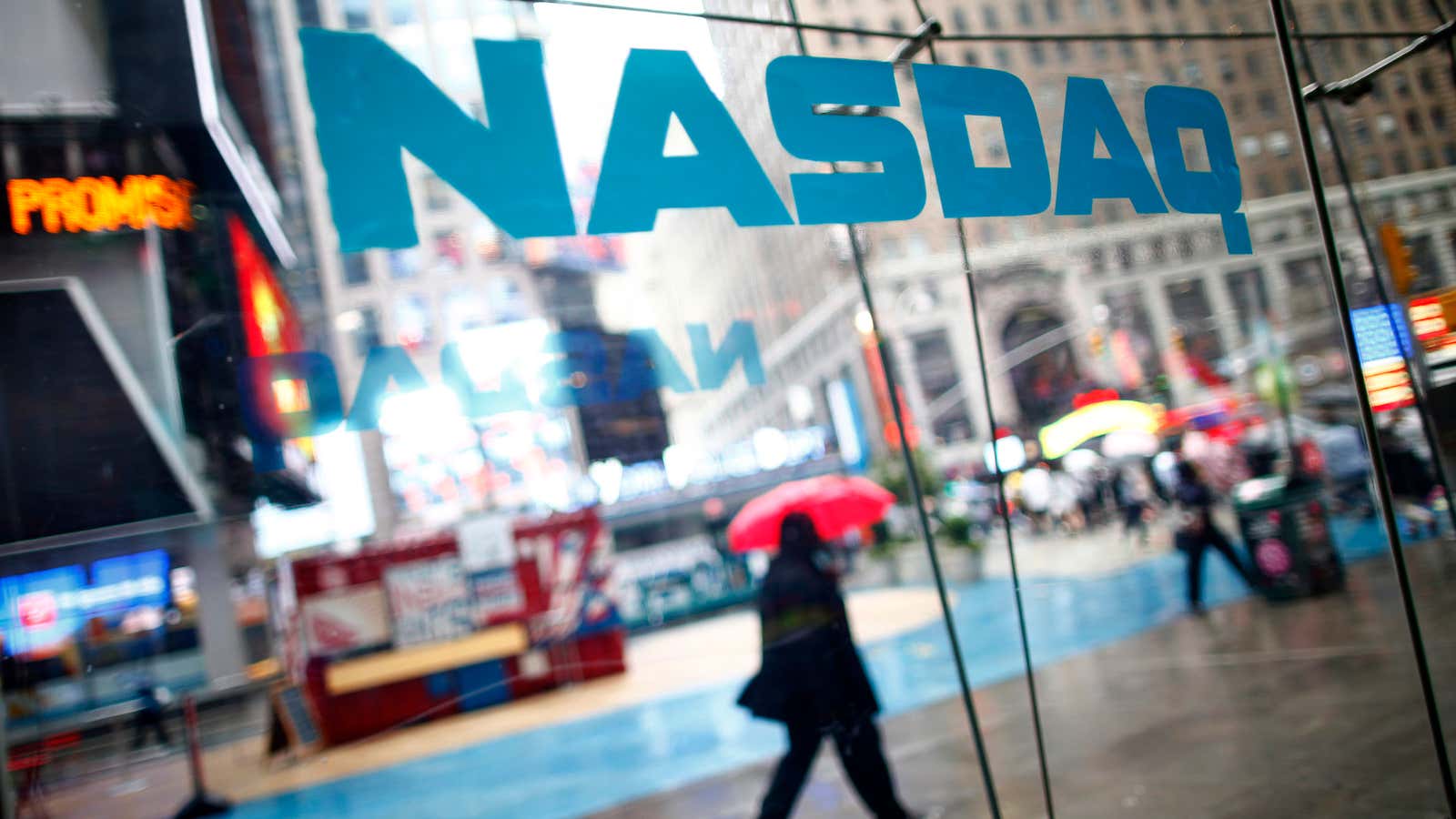With startups staying private longer—whether because they want to avoid the scrutiny of being public or because they simply aren’t ready to go that route, financially or operationally—it’s been harder for shareholders in private companies to access any returns. That’s created a boom in secondary markets that allow companies, employees, and investors to buy and sell private shares.
Underscoring that opportunity, Nasdaq announced today (Oct. 22) it has acquired SecondMarket, one of the leaders in the secondary trading market. The size of the deal was not disclosed.
Companies staying private longer is of course bad for exchanges like Nasdaq, which reap hefty fees from offerings, as well as the bragging rights that come from listing a hot company. As such, Nasdaq has been getting more interested in the secondary market, launching its own private marketplace in 2013. The SecondMarket team will join that division, and SecondMarket CEO Bill Siegel will lead the group.
SecondMarket gained prominence before Facebook went public, with institutional investors and former Facebook employees buying and selling shares of the social media company ahead of its offering. In 2014, transactions worth $1.4 billion took place on its platform, four times the volume from the previous year.
Activity is likely accelerating this year, as tech IPOs were down to a seven year low last month due to a number of factors. First and foremost, startups have had access to cheap and abundant capital thanks to low interest rates and eagerness among venture capitalists to find the next big thing like Facebook. Additionally, many recently public tech companies, like Twitter, have had a hard time managing the expectations of Wall Street, making it a less enticing option for others.
Still, some investors like Benchmark Capital’s Bill Gurley think companies are waiting too long to go public and would like to have the opportunity to cash in some of their holdings. (Notably, one of Gurley’s most prized investments, Uber, is a poster child for staying private—the ride-sharing company has raised $8 billion from private investors, including multiple $1 billion fundraising rounds.)
The lack of IPOs also hurts employees, who usually see a big payday when their employer goes public. SecondMarket sees a lot of activity from startup employees looking to free up some cash. Similarly, it gives investors early—and sometimes cheaper—access to shares in red-hot companies ahead of a public offering.
